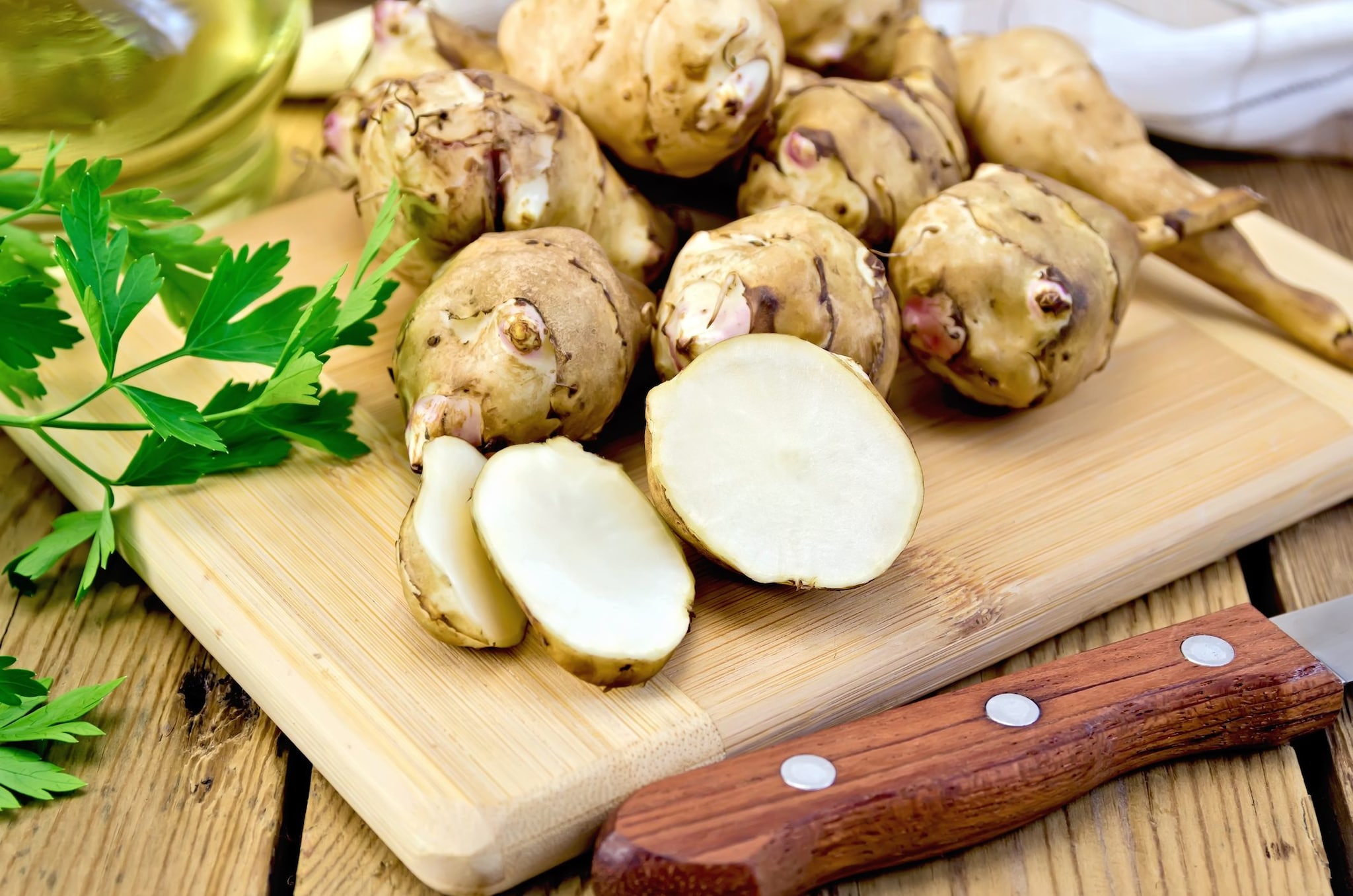Jerusalem artichokes, also known as sunchokes, are a tasty tuberous vegetable that can be used in many dishes. However, they are notorious for causing excessive gas and flatulence due to their high inulin content. Inulin is a type of soluble fiber that cannot be broken down by human digestive enzymes. When it reaches the large intestine, gut bacteria ferment the inulin and release gases that lead to bloating and flatulence.
While this effect has given Jerusalem artichokes an unfavorable reputation, there are several preparation methods that can help reduce their gassiness. Here are some tips for cooking sunchokes to avoid wind:
Choose Older, Stored Sunchokes
Newly harvested Jerusalem artichokes contain very high levels of inulin. As they are stored over fall and winter, the inulin slowly converts to fructose which is much easier for humans to digest. Choosing older, stored sunchokes that have been naturally aged allows more of the inulin to convert before cooking.
Cook Thoroughly
Cooked sunchokes tend to be better tolerated than raw. The more thoroughly they are cooked the more the indigestible inulin is broken down. Cook sunchokes until very soft or mushy to get the full benefit. Baking, boiling sautéing, or roasting for 30-60 minutes can help reduce their gassy carbs.
Double Cook for Best Results
Cook sunchokes once by boiling or steaming, let cool, then cook again by roasting, sautéing, baking, or stewing. The initial cooking helps soften cell walls and leach out inulin The second cooking finishes converting the starches to fructose This traditional method yields the least gassy results.
Add Acid During Cooking
Acids like lemon juice, vinegar, or citric acid can help break down inulin during cooking. Add a tablespoon or two while boiling, braising or sautéing sunchokes. The acid lowers the pH and catalyzes hydrolysis of inulin into more digestible simple sugars.
Use a Pressure Cooker
The high temperature of a pressure cooker can help rapidly break down inulin fibers. Cook halved or quartered sunchokes for 10-15 minutes until very soft. The pressure and condensed steam softens cell walls faster than conventional cooking.
Pickle in Vinegar
Quick pickling or fermenting sunchokes in an acidic brine helps pre-digest their fibers. The acetic acid in vinegar performs a similar function as lemon juice. Opt for longer pickle ferments for maximum benefit. Well-fermented sunchokes can be tolerated without issue.
Introduce Slowly
Start with small portions of 3-5 cooked sunchoke pieces. Gradually increase the amount at each meal to give your gut flora time to adjust. This may help avoid excessive gas from suddenly overloading your digestion with this unique carbohydrate.
Pair with Other Veggies
Balance sunchokes’ inulin effect by eating them in combination with gut-friendly foods like yams, squash, carrots or sweet potatoes. Their sugars and starches help counteract the specific form of fermentation caused by inulin.
Try Gas-Relieving Spices
Add spices like fennel, cumin, ajwain, ginger or turmeric while cooking sunchokes. Their carminative compounds gently relax the digestive tract and relieve gas production and bloating.
Stay Hydrated
Drink plenty of fluids when consuming Jerusalem artichokes to help flatulence pass quickly. Water and herbal teas can provide hydration without additional gas production.
With the right preparation methods, Jerusalem artichokes can be enjoyed without uncomfortable digestive effects. Proper cooking, fermentation, and food combining can neutralize most of their troublesome inulin carbs. Just be sure to introduce them gradually and cook them thoroughly to reap their full nutritional benefits while avoiding excess wind.
Jerusalem Artichokes | In Defence of the Jerusalem Artichoke | VEG HACKS
FAQ
How to get rid of gas from Jerusalem artichokes?
Can Jerusalem artichokes upset your stomach?
Are Jerusalem artichokes good for your gut?
What is the best way to eat Jerusalem artichokes?
How do you cook Jerusalem artichoke?
Scrub artichoke tubers and cut out eyes. Cut tubers into 1-inch pieces. Mix olive oil, thyme, garlic, and sea salt together in a large bowl; add Jerusalem artichoke pieces and toss to coat. Arrange coated pieces in one evenly-spaced layer on a baking sheet. Roast in the preheated oven until tender, 35 to 45 minutes.
Can you boil Jerusalem artichokes?
Yes, you can boil Jerusalem artichokes. Modern science advises that boiling Jerusalem artichokes in an acid such as lemon juice or vinegar will hydrolyze the inulin to fructose and small amounts of glucose.
How do you remove dirt from Jerusalem artichokes?
If you are sensitive, add a little lemon juice or vinegar to the pot of boiling water when cooking the sunchokes and that should also help. It’s hard to get all the dirt off of some sunchokes. Rinse, boil (the boiling will get some of it off), rinse again, and cut out the dirt if necessary. What do Jerusalem Artichokes Taste Like?
Are Jerusalem artichokes (Sunchokes) healthy?
Jerusalem artichokes, also known as sunchokes, are healthy due to their unique carbohydrate content, specifically inulin. However, this same component is responsible for their intestinal effects.
- A Complete Guide to Caring for Yuki Cherry Blossom Shrub - January 23, 2025
- Identifying Red Hot Poker Seeds: What to Look For When Harvesting Torch Lily Pods - January 23, 2025
- A Complete Guide to Harvesting Evening Primrose Seeds - January 23, 2025

